#metaphysical thriller
Explore tagged Tumblr posts
Text
"This presence of all things, seen and unseen, around and about; remember. There will be days in your life where you'll need to have this feeling again, to know that all that's gone from the world hasn't really gone at all; it's just not in sight."
Clive Barker, Sacrament (1996), pg. 432
#clive barker#sacrament#90s thrillers#90s metaphysical thrillers#1996#queer fiction#queer art#english lit#quotes#mysticism
4 notes
·
View notes
Text
Dana Kippel's Reflect is More Than a Meditation on the Game of Life
When I'm into the metaphysical just as much as @DanaKippel, her movie Reflect certainly got me thinking. It's a multi #genre film that defies usual conventions. #moviereview at:
Available to stream on Apple TV Shades of The Truman Show can be found in Reflect, a movie written and directed by Dana Kippel. When she stars in it too, I can’t help but wonder if this work is a result of her going through some personal crisis that she wants to look back on, and sort through. Whatever the case, this magical journey has some elements to like, and other bits which will vary in…

View On WordPress
0 notes
Video
youtube
REFLECT | Trailer, Poster & Images
Unhappy with her current relationship, Summer sets out on a road trip to Sedona, AZ, accompanied by her four gal pals to a spiritual obstacle course. Upon arriving, they are greeted by their uncanny host, Hermes who leads them into the vast desertscape which becomes the foreground for the interdimensional game show they unknowingly are participating in.

Transported, they begin a colorful, surrealistic journey of the soul, diving into issues surrounding trauma, mental health, and female relationships. The girls start to go missing one by one as we discover mysterious hooded figures are following them. As the tension rises, who will figure out how to escape this and become the last one standing, ultimately winning The Game of Life?

Dana Kippel headlines the film as Summer, rounded out by a cast including Grace Patterson, Jadelyn Breier, Marissa Patterson, Ariana Williams, Corey Brooks, Eric Scott Woods, Dash Katz, Maya Knell, Ryan Jack Connell, and Joe Filippone. Kippel produced under her Crazy Carrot Films shingle, alongside Zac Coats, Ryan Jack Connell, Brian Duss, Grace Patterson, Loan Thach, and Rhiannon Moller-Trotter. Michael DeLano of COTU Media served as executive producer.

Cranked Up Films is excited to kick off their 2024 slate with the North American VOD release of Reflect, the feature film debut of writer/director/star Dana Kippel. REFLECT debuts on Digital VOD January 9, 2024, including Prime Video, Apple TV, Google Play, and Vudu.

REFLECT world premiered at the Chandler International Film Festival and went on to screen at the Boston Science Fiction Film Festival, the Sydney Science Film Festival, and the ETHOS Film Awards International Film Festival.
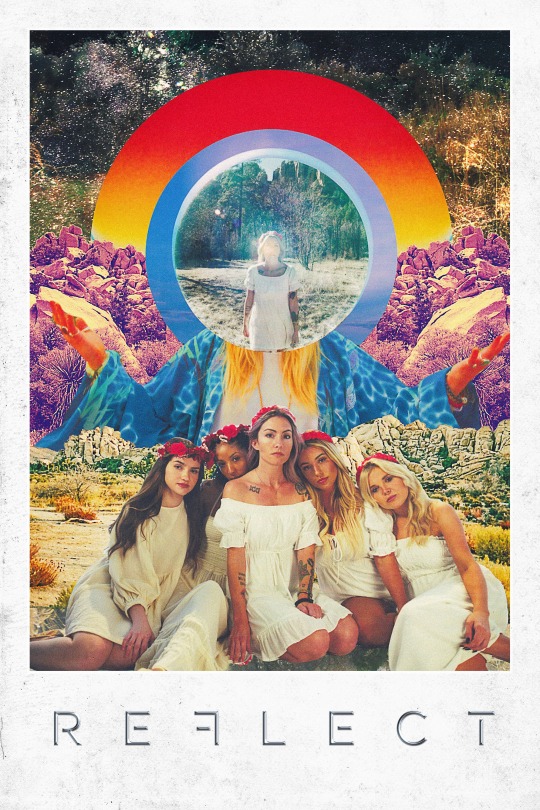
#youtube#film news#movie news#trailer#images#poster#reflect#reflectmovie#dana kippel#cranked up films#metaphysical#sci-fi#thriller
1 note
·
View note
Text
I’d like to introduce myself to the class,,,
In 2018 I experienced a life altering haunting. After watching a movie about a serial killer, odd occurrences began taking place in my home. Flickering lights, moving objects, and haunting dreams were only a few hints that contributed to my suspicion that the paranormal activity could be from him, the late serial killer that I had been reading about. This story will take you through my journey as I wrestle with the ghost's tantalizing grip and my own skeptical mind. It is a perspective through my eyes as I ask myself: is the ghost of a serial killer worthy of my help into the light?
I never imagined I would have experienced, let alone written to share about such a story. Through learning about the spirit around me, it awoke my own dormant psychic-medium abilities. What begins as a dark story turns to a lesson of helping someone to salvation and inner peace.
#ghost stories#truecrime#ghosts#metaphysical#paranormal#supernatural#thriller#spooky#halloween#horror#witch community
1 note
·
View note
Text
open your eyes, brothers and sisters.

View On WordPress
#angels#Apocalypse#Archangels#Bible#Christ#Christianity#demons#devil#faith#God#gospel#humanity#Kingdom of God#light#metaphysical#Satan#spirituality#thriller#truth#War
1 note
·
View note
Note
Hi! Hi! Hi! I was wondering if I could get some comic recs? I'm particularly into Batman but more of him actually working alone- as much as llove the batfam, my mind can't keep up when there's too many characters, you know? I can just barely finish any Justice League comic.
A lot of comics are poorly characterized. I still shiver at the thought of All Star Batman and Robin. Seeing how your views match a lot with mine, l'd appreciate some recs!
Hi, sweetheart! Of course I can.
I get that sometimes comics with a huge cast of characters can be very overwhelming, so no worries, I've got you.
Here are my own personal favorite comics focused on Bruce/Batman:
Batman: Ego (2000)
Batman: Ego dives deep into Bruce Wayne's psyche, exploring his inner conflict between being Batman and his more compassionate, human side. This introspective one-shot is about Bruce trying to reconcile his mission with the toll it takes on his mental health. It's not overly dark, focusing instead on the emotional and psychological weight of being Batman.
A series that fully focuses on Batman is the Batman: The Legends of the Dark Knight comic series. I totally recommend reading through it, but here are my favorite storylines within the series:
Prey ( Issues #11-15 )
Prey is an underrated psychological thriller featuring Hugo Strange as the villain. The story emphasizes Batman's tactics, his psychology, and his early struggles in Gotham. It's well-paced, focusing entirely on Batman and his developing relationship with the GCPD.
Gothic ( Issues #6-10 )
Batman: Gothic is filled with symbolism and metaphysical elements that explore Bruce Wayne’s traumatic past and his drive as Batman. It’s very much a story about Batman’s mind, his motivations, and the weight of his mission, with a heavy focus on the noir aspect of the character.
Batman: Ghosts (1995)
Batman: Ghosts is a retelling of Charles Dickens' A Christmas Carol with Batman as Scrooge. It features Bruce Wayne being visited by three spirits who force him to reflect on his life choices and mission as Batman. This is a more introspective story that emphasizes Bruce's inner struggle, not unlike Batman: Ego. It explores his guilt and the cost of his crusade against crime, though with a more optimistic tone.
Batman: Blind Justice (1989)
Written by the screenwriter of Tim Burton’s Batman, Blind Justice is a detective story with strong psychological elements. It focuses on Bruce Wayne more than his alter ego and explores his sense of guilt, responsibility, and the price of being Batman
However, if you do feel like reading more light-hearted series/comics, here are two I've recently finished and had so much fun reading:
Batman: Gotham Adventures (1998-2003)
Batman: Gotham Adventures is a comic series that spun out of Batman: The Animated Series and continued the tone, character designs, and storytelling style of the show. It is a more all-ages-friendly series, with self-contained issues that often focus on Batman solving crimes, battling his iconic rogues' gallery, and protecting Gotham City. The series mixes action with the detective work that defined the animated series, showcasing Batman as a sharp investigator and a moral force in a crime-ridden city.
Joker: One Operation Joker ( 2021– )
Joker: One Operation Joker is a humorous and highly unconventional take on the Batman-Joker dynamic. The premise is wildly different from typical Batman stories: after an accident during one of their confrontations, Batman is transformed into a baby. The Joker, of all people, takes on the role of caregiver, with his new goal being to raise baby Bruce Wayne back into adulthood—while maintaining his usual chaotic nature.
Don't hesitate to DM/ask for more! And if you'd like to ramble together over some of them, since you did mention having similar views, definitely don't shy back from sending me a text!
#batman#dc comics#batfamily#bruce wayne#comic recommendations#comics#detective comics#batman comics#aria recs
68 notes
·
View notes
Text

David Lynch: the great American surrealist who made experimentalism mainstream
From disturbing debut Eraserhead to his masterpiece Mulholland Drive, Lynch’s dark tales combined radical experiment with everyday Americana
No director ever interpreted the American Dream with more artless innocence than David Lynch. It could be the title of any of his films. Lynch saw that if the US dreamed of safety and prosperity and the suburban drive and the picket fence, it also dreamed of the opposite: of escape, danger, adventure, sex and death. And the two collided and opened up chasms and sinkholes in the lost highway to happiness.
Lynch was a film-maker who found portals to alternative existences and truffled in them like they were erogenous zones, moist orifices of existential possibility. He was the great American surrealist, but his vision was so distinctive that he became something other than that: a great fabulist, a great anti-narrative dissenter, his storylines splitting and swirling in non sequiturs and Escher loops. Lynch was unique, in that he took a tradition of experimentalism in movies such as Maya Deren and Alexander Hammid’s Meshes of the Afternoon and brought it into the commercial mainstream, mixing it with pulp noir, soap opera, camp comedy, erotic thriller and supernatural horror.
Who did Lynch most resemble? Maybe Luis Buñuel from the pioneering 1920s, Douglas Sirk from the Hollywood 1940s, Alejandro Jodorowsky from the counterculture 1970s. Or maybe Edward Hopper (whose painting Office at Night has something Lynchian to it) or Andrew Wyeth and his mysterious midwest tableau Christina’s World. But “Lynchian” could as well mean mainstream or even conservative. Lynch himself was not joking when he talked about his pride at being an Eagle scout in his boyhood.
And he could direct conventionally plotted (if generically freaky) films such as The Elephant Man, with John Hurt as the exploited Victorian fairground attraction, and his adaptation of Frank Herbert’s SF standard Dune – and even the emotional and gentle The Straight Story (whose title concedes its outlying quality), based on the true story of an old man who drove his lawn tractor from Iowa to Wisconsin to visit his estranged brother. Lynch was always passionate about Americana, and Steven Spielberg shrewdly cast Lynch as the western movie legend John Ford in his film The Fabelmans.
Yet with films such as his disturbing, sepulchral debut Eraserhead and (what for me is his masterpiece) Mulholland Drive, a dark fantasia of Hollywood despair, he showed that the challenge to normality was itself erotic. He underlined it with the throbbing and groaning sound design and inspired musical scores from his longtime collaborator, composer Angelo Badalamenti. I will always remember after the first showing of Mulholland Drive in 2001, all of us dizzy and jittery with how very sensual and strange it had been, how witty and how erotic.
Perhaps most remarkably of all, Lynch’s ongoing smallscreen project Twin Peaks anticipated by decades today’s cultural prestige of streaming longform television. And in fact none of today’s Sopranos and Mad Men match Twin Peaks for auteur television. Watch the first two seasons of Twin Peaks from the 90s, the story of a straight-arrow FBI man (played by Kyle MacLachlan) investigating the metaphysical mystery of a violent murder, and see how the second ends with a promise to pick up the story in 25 years’ time – and it actually did. The brightly lit, theatrically soapy look of 90s TV drama was replaced in the third season by the darker, gloomier look of 21st-century high-class TV production. But it was Lynch, through and through.
“This whole world’s wild at heart and weird on top!” wails Laura Dern’s distraught Lula in Lynch’s Wild at Heart, anguished in her wretched motel bedroom, pregnant with her lover’s child – that is, the convicted killer Sailor, a Presleyesque figure played by Nicolas Cage. It’s actually not quite a description of the world as Lynch sees it. In the macabre Blue Velvet from 1986, the world is normal on top, weird underneath, but these layers can’t exist without each other. A clean-cut guy played by MacLachlan, walking home in a suburban American utopia, finds a severed ear on the ground: a symbol, perhaps, of the director’s own hypersensitive perception of underground stirrings and the hidden America. Soon this man is to conceive an obsession with a nightclub singer: part of Lynch’s own longstanding obsession with secret cabarets and occult theatrical rituals, and his particular rapture for the red curtain, rippling and stirring with the mystery it conceals. A Freudian image, yes, but maybe Lynchian is the superseding adjective.
Lost Highway, in 1997, was one of his doppelganger hallucinations, in which Bill Pullman’s troubled sax player and his wife (Patricia Arquette) are terrified by an anonymous tormentor who leaves video cassettes on their doorstep with footage of the outside of their house – an idea later borrowed by Michael Haneke in his movie Hidden.
But for me Mulholland Drive is his masterpiece of eroticism and despair, a brilliant riff on how in Hollywood disillusion is a toxic-waste byproduct of the dream factory. The relationship of Naomi Watts’s saucer-eyed ingénue and Laura Harring’s enigmatic troubled woman is one of the great fraught friendships of modern American cinema.
I myself met Lynch only once, and that was online: a video-linked Q&A for the unveiling of his photographs at the Photographers’ Gallery in London. One of the questioners was someone who had been a walk-on in The Elephant Man and Lynch was instantly hugely excited and insisted on her being brought up to the platform so that he could see her face; he could hardly be persuaded not to simply make the rest of the evening his reminiscences with her. Lynch was always plotting ways to smuggle his audience into new territories of fear, desire and pleasure.
Daily inspiration. Discover more photos at Just for Books…?
10 notes
·
View notes
Text
What Even Is a Kara no Kyoukai?
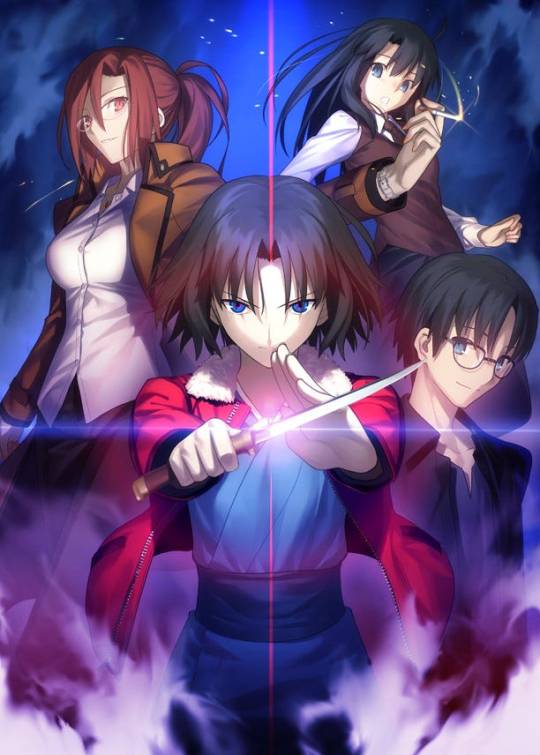
Kara no Kyoukai is a series of anime movies put out by Ufotable between 2007 and 2013 based off of the light novel series of the same name written by Type-Moon founder and creative director Kinoko Nasu in the 90s.
That's it, that's the post.
But seriously, if you're familiar with Nasu's other works, you'd know that they have a reputation for being rather inaccessible, especially to those in the west and Kara no Kyoukai specifically comes with some extra content warnings that aren't as prevalent in some of his other works.
Now, this would normally be fine, however a lot of content put to the forefront as "primers" to the show by the anime community either focus too much on the metaphysics and how it relates to other Type-Moon media or is a detailed thematic analysis that gives away too much of the sauce.
I plan to do neither here.
Instead, I'll give a brief rundown of the show's traits. Then, I'll talk about the main cast of characters and I'll finish it off by giving the general premise of each episode. (And I'll lump all of the Extra Chorus OVAs together for this purpose.)
So, Kara no Kyoukai sorta paved the way for the trappings you'd expect of modern Ufotable. Even over 15 years later, the show is absolutely gorgeous and puts a lot of modern anime to shame with its production quality. The attention to detail, shot composition and immaculate backgrounds that you'd expect of a Unfotable production are all here. Except this was really the first work to bring those traits to the forefront.
Just on the merits of that, as an anime watcher its worth the curiosity. The triumphs of productions like Demon Slayer and Fate/Zero clearly trace their DNA right back to Kara no Kyoukai.
The OST for this series is... basically unmatched. Kalafina was founded to do the music for this show, and the general consensus seems to be that Yuki Kajiura did some of, if not her very best, work on this show.
Admittedly I'm a not a big music analysis person, but I will personally attest that the ambiance and immersiveness of Kara no Kyoukai's score is some of the best in any piece of media that I have consumed. Also the big theme songs for each film all absolutely rock.
Doing a little background research, it looks like a lot of those theme songs are on the Kalafina album Seventh Heaven, so if you're a fan of high-quality J-pop/rock, give that a go maybe. I mean, they're really good in a vacuum, better in the context of the episode they were written for.
Its paced a lot slower than a lot of other anime movies, leaving a lot of room for ambiance and quiet character moments. Also quite a bit of the series is just characters talking, be it about philosophy or metaphysics, but it's usually not egregious and if you're into that sort of thing (which I am) it's a good time. Also the cuts can be quite creative, especially in Paradox Spiral.
So, now that a lot of that peripheral housekeeping is done:
What the Fuck even is a Kara no Kyoukai?
It's a paranormal mystery, dark urban fantasy thriller seinen anime that explores themes of humanity, identity, sin and dichotomy. Oh and murder. Especially murder.
The general plot setup is more something you'd expect of a shoujo. Boy meets girl, the complexities and trials of their relationship etc.
The big twist is that the girl in this trope is best described as "one who murders" and the story is told out of chronological order.
It's set in a fictitious city in Japan called Mifune, mostly between '96 and '99. Supernatural phenomenon exist, but aren't common knowledge and the main focus of the subject matter is individuals with some manner of ESP or active psychic ability, though there's significant representation from elements of mysticism as well as more archetypal wizard sorts.
I strongly recommend watching the films in release order because its better thematically, however there's a lot of value on a rewatch and doing so in chronological order could shed some light on things.
As I'm about to transition into talking into some of the show's particulars, here's where I'll put the content warnings for those who would prefer going in blind and would like to know what horrible imagery they're about to be exposed to or would maybe be dissuaded by.
CW, suicide, gore, horror, sexual assault, domestic violence, cannibalism.
Who are the main characters in Kara no Kyoukai?
Shiki Ryougi is our main character. A young woman with an attraction to death and murderous impulses. She presents as stoic, but she's anything but uncaring. She's very nuanced, but as the main character a good deal of the series goes into exploring her, so I won't delve into her complexities. After an accident as a teenager that left her in a coma, she gained the ability to see death in the forms of lines that act akin to the 'seams' of living beings, objects and even concepts. By cutting on these lines, she can kill anything.
Mikiya Kokuto is our male lead. An intelligent and excessively kind young man who became hopelessly infatuated with Shiki in high school, only to suspect that she was the one perpetrating a series of serial murders. When Shiki was comatose, he wound up working as a private investigator of sorts for the Garan no Dou agency, but continued to carry a torch for Shiki.
Touko Aozaki is our mentor character of sorts. More than likely the greatest doll and puppet maker in the world, Touko is also a mage and a lauded polymath, excelling in basically any field that proves of interest to her. She runs the Garan no Dou agency and employs Mikiya for his investigative prowess and later Shiki for her combat abilities as her sole employees. She's a chainsmoking girlboss who can be overly verbose and pretentious. Despite some unscrupulous morality, she legitimately cares about her subordinates.
Azaka Kokutou is Mikiya's younger sister who vehemently opposes her brother's relations with Shiki. Certainly the "4th wheel" of the cast made worse by the adaptation greatly condensing her chapter to laser in more on the Shiki and Mikiya dynamic. She apprenticed herself to Touko as a means of inserting herself into the workings of Garan no Dou. Azaka is smart, expressive, headstrong and funny. Touko is teaching her flame manipulation, as that's what she has the most affinity for.
I'll omit the antagonists here and encourage folks to watch the show as my little blurbs here give the jist of the cast, but really doesn't do them justice. The cast for the most part is really well characterized and much in Nasu's style, even when he plays to a trope there's a lot more to it than that.
What Exactly am I in for?
So, there's (depending on your definition) 8-9 films and a few ~10 minute OVAs. Unfortunately, the light novels have never been localized and there's only an incomplete fan translation and a somewhat inaccurate machine-assisted translation.
The film series adapts every part of the series except the side-story Final Record, albeit Azaka's chapter, Oblivion Recording, was greatly altered for the film adaptation.
The main series ran from '07 to '09 and includes episodes 1-7 and the Epilogue. Future Gospel and the OVAs came out in 2013 and they're a few side stories with the main act functioning as an epilogue of sorts to the epilogue.
So, the films post their position in the timeline at the end of each instalment, but I'll post them upfront here for the purposes of making it easier for one to keep track and using this piece as a guide.
I - Overlooking View (Sept '98) A series of suicides committed by schoolgirls jumping off of the roof of an abandoned apartment building catch the interest of the members of Garan no Dou. Some supernatural effect causes Mikiya to fall into a deep sleep and when Shiki investigates the building, she sees the ghostly figures of eight girls in the sky.
II - Murder Speculation Part 1 ('95-'96 schoolyear, ending in March) Mikiya becomes classmates with Shiki, who he immediately becomes infatuated with despite her less than accommodating personality. A series of murders happen in the city and Mikiya, suspecting her to be the perpetrator, tries to prove her innocence.
III - Remaining Sense of Pain (July '98) A young woman is viscously assaulted and the perpetrators are turning up dead, their bodies horribly mangled. Garan no Dou is presented with the case, but due to Touko's monetary problems, Mikiya resorts to freelancing in the short term. Shiki intends to put the murderer down, claiming them to be similar, albeit one of them is out of control.
IV - The Hollow Shrine (June '98) Shiki awakens from her coma after the accident, feeling hollow due to what she lost and now possessing the ability to see death. Mikiya is barred from visitation, as it's restricted to the family, so Touko sneaks into the hospital to check on her and takes immediate interest in Shiki's new perceptive abilities.
V - Paradox Spiral (November '98) A young man murders his mother in self-defense and winds up being helped by Shiki. Mikiya investigates some suspicious tenants of an apartment building that Touko designed and some old associates of Touko's are in town, one of them with a bone to pick.
VI - Oblivion Recording (January '99) Garan no Dou is asked to investigate a suspicious suicide at Azaka's boarding school and some lapses in memory around the incident in question. Shiki is dispatched, much to Azaka's displeasure and the two work to uncover a mage using fairies behind the two events.
VII - Murder Speculation Part 2 (February '99) Shiki, feeling perturbed, hasn't been frequenting her apartment. Meanwhile the serial murders from '96 start back up. Mikiya, trying to prove Shiki's innocence, begins investigating a drug ring related to the incidents and the events of the unsolved '96 murder cases finally come to light.
Epilogue - The Boundary of Emptiness (a few weeks after the events of Murder Speculation 2) Two people have a fateful meeting where they discuss some particulars of the events of the series, metaphysics and philosophy. It's literally a half-hour conversation. It's classified as an OVA, but it's almost as long as The Hollow Shrine.
Future Gospel (August '98 & Summer 2010) A serial bomber with the ability to see the future winds up targeting Shiki after proving unable to kill her meanwhile Mikiya has a chance encounter with a girl with a similar ability. Later, an elderly woman who tells fortunes attracts the negative attention of a crime syndicate.
Future Gospel - Extra Chorus (After the events of the summer of '98) A series of short vignettes, about 10 minutes apiece. Shiki takes care of a cat. A girl feels guilty over the death of her best friend. Mikiya and Shiki celebrate New Years.
The Future Gospel stuff, being a side story has a very different feel than the main series (I blame most of the events happening during the day and it being notably less gore-y than the earlier parts). But it's still a very fun watch. In a lot of ways it acts as a means of tying the series up in a bow with a nice "10 years later" segment and some flashbacks to the '95 school year. If you're going to skip something, skip it, but seeing as you've presumably made it that far already, you deserve a treat because it's just fun.
But yeah... this is my favorite anime series. I just finished a rewatch last night and felt urged to type this up. Hopefully it helps people or encourages folks to give the show a try if they've otherwise felt daunted.
#kara no kyoukai#type-moon#kalafina#the garden of sinners#ufotable#shiki ryougi#mikiya kokutou#touko aozaki#azaka kokutou#demon slayer#fate zero
18 notes
·
View notes
Text
2023 wrapped: webtoon edition!
my final 2023 wrapped post for the year! unlike previous ones, this list is every series i read this year vs. ones that started this year. previous lists for this year:
cdrama edition
kdrama edition
ranked from least favorite to most favorite, which doesn't mean objectively best, just ones that hit me more. ones that are completed series will have a * after the title
15 my deepest secret*. omfg i hated this webtoon. the twist was asinine and frankly ignorant. none of the characters were likeable by the end. hate quit this one with like 5 chapters left to go i just couldnt
14 my second husband. seemed promising at first! i was hooked for the first 40 chapters or so but then it just started getting weirdly paced, had big plot holes, and nothing ever felt like it was getting resolved. the ML had like 0 charisma as well. dropped.
13 to love your enemy. this one was REALLY fun until the cult arc hit and then it was the biggest wtf is happening. dropped it shortly after
12 i dont hate us*. i liked this one until the timeskip ending, where then everyone and everything just felt really off. the second female lead gets a special mention because i HATED her at first but by the end she was my favorite character <3
11 romance 101.* this was okay. the art style was really cute and i loved the FL. but there never seemed to be any chemistry with the main ship to me, and the plot became really focused on the app/programming club which bored the hell out of me. dropped this one around chap 100
10 shadow bride. nothing bad but nothing particularly noteworthy for me. fluff read.
9 high spirits neoma. im not very far into this webtoon yet, or it'd be higher up the list im sure. im around ch 5 and finding it really charming and i love the color palette for it
8 dreaming freedom/freedom in dreams. although the art style isnt my cup of tea, i really enjoyed this fucked up high school revenge/romance webtoon but where im currently at (ch. 111ish) it's starting to feel a little circular. hoping it goes back to what it does best which is Unsettling Shit
7 my reason to die*. man this would've been in my top 3 but the ending arc is just. really boring??? like i dont want to watch them search for a pot farm for 10 chapters. i havent finished this one yet, but ive been putsing getting back into it ever since post reveal. the drama is very pretty though and the reveal chapters hit me like a truck in a good way
6 operation true love. i borderline hated this webtoon when i first started, but the reviews had me wanting to stick it out and im so glad i did!! around ep 10ish it really finds its footing and just keeps going for it! very kdrama in flavor and endearing FL.
5 unholy blood*. a fun, dark, and nostalgic webtoon about vampires and vampire hunting that brought me back to my tween years in the best way. the character designs are really awesome. it's a little lower on the list because the ending felt a bit rushed, but it's a really solid horror/action comic with a lil romance
4 surviving romance*. this one's complete but i got about 10 chapters left. it's a really fun horror comic (NOT romance, dont be fooled by the title) that reminds me of extraordinary you but if the plot was focused on the metaphysical horror of it a little more. fun characters and relationships. a little lower just because the second "return" arc feels tedious/unneeded so far. we'll see. TEAM RINA.
3 maybe meant to be/fate found by chance. ive found that i tend to gravitate toward darker webtoons, so this is my c-c-combo breaker! cute, funny, quirky, and really endearing. standard contract marriage plot but between two delightful weirdos
2 purple hyacinth. this series is everything. the art is gorgeous, it has its own OST built into the reading. the characters are nuanced and complicated and omg it's a ride and a half so far.
1 olgami/trapped*. INCREDIBLE characters and such an intense look at enemies-to-lovers. the drama starts as a psycho-thriller about gravedigging for a vampire and ends up about two leads who have never learned how to love willing to try it with one another in their fucked-up way. dysfunctional. hot. SO GOOD. the art evolution for this series was great as well
25 notes
·
View notes
Text
Wisps of Obsession Ⅵ

Summary:
Legend said on a night with a full moon along with a lit candle you could call on anyone. I didn’t know if I believed that back then but now I know for sure it’s true. He shows up on a full moon night just to stake his claim before the shadows call him home.
Willow.
A name etched into my essence with his bare hands..
Pairing: Jeff Hardy/Willow the Wisp x Nyx Gordan (Black OC)
Author’s Note: This one is a dark romance with Jeff’s alter, Willow the Wisp. Apparently he’s bringing it back so that will be. I love psychological thrillers so much of this is focused on that aspect. Hopefully I will do it justice. Very excited for this!
Warnings: None.
Disclaimers: This work of art is fictional in nature including the original characters created by me. I do not own any of the existing characters or lyrics from songs referenced in this story (if any). All rights belong to their respective owners with the exception of my original characters. This work is purely for entertainment purposes and is not intended to cause harm.
Want to read from the beginning? Click Here
Chapter 6: The Whispering Shadows
Nyx woke to the sound of rain pattering against the windows, its rhythm steady and almost soothing. But the moment she opened her eyes, the calm shattered. Her apartment was steeped in shadows, the edges of furniture barely visible in the dim light of an overcast morning. The note she’d crumpled the night before lay smooth and uncreased on the nightstand beside her bed.
Her breath hitched. She had thrown it away. She knew she had. The crisp edges of the note seemed to taunt her, daring her to touch it again. Her fingers twitched, but she recoiled, pulling her hand back as though it might burn her.
The air in the room felt heavy, pressing against her like an invisible weight. The rain’s rhythm faltered for a moment, the sound receding as her pulse roared in her ears. “It’s nothing,” she whispered to herself, her voice breaking the eerie silence. “Just a stupid piece of paper.”
Shaking off the creeping dread, she forced herself to get up. Each step across the wooden floor seemed unnaturally loud, the creak of the boards echoing in the stillness. As she moved around the room, she couldn’t shake the sensation of being watched. Every flicker of light from the rain-soaked window set her nerves on edge, and the fine hairs on her arms refused to settle. Even the mirrors felt alive, catching glimpses of her reflection that didn’t seem entirely her own.
☂︎
By the time she made it to the metaphysical shop, the air outside was thick with humidity and the smell of wet asphalt. The shop’s bell chimed softly as she entered, its sound swallowed by the rows of dusty shelves and the faint aroma of incense. The shop’s dim lighting and cluttered displays felt like stepping into another world, one where time moved slower, and the air was thick with secrets.
The clerk looked up from behind the counter, her demeanor calm but her gaze penetrating, as if she could strip away every pretense Nyx tried to hold onto. There was an aura of knowing about her, a stillness that suggested she had seen more than she let on.
“Back again?” the clerk asked, her voice low and smooth. “You have questions.”
Nyx hesitated, shifting uncomfortably as her fingers tightened around the strap of her bag. “I found… a note.”
The clerk’s eyebrows rose slightly. “A note? From whom?”
Nyx glanced around the empty shop, lowering her voice. “Willow.”
The clerk’s expression tightened, her hands stilling over the glass counter. “You’ve been reading the journal, haven’t you?”
Nyx nodded, swallowing the lump forming in her throat. “There’s something happening. Things I can’t explain. Last night, he…” She trailed off, unsure how to put it into words.
The clerk leaned forward slightly; her tone hushed but urgent. “He’s dangerous. Whatever he’s offering, it’s not what it seems.”
“You’ve heard of him before?” Nyx asked, her voice tinged with desperation.
The clerk hesitated, her gaze flicking toward the back room before returning to Nyx. “The journal didn’t just appear. It belonged to someone. Someone who thought they could handle him.”
Nyx’s heart raced as she leaned in, her curiosity outweighing her fear. “Who?”
The clerk’s lips pressed into a thin line, her voice dropping to a whisper. “It’s better you don’t know. The less you’re entangled, the better.”
“Entangled?” Nyx repeated, frustration bubbling in her chest. “You think I have a choice? He’s already…” She stopped herself, glancing around as though he might be lurking among the shelves. “He’s already here.”
The clerk’s eyes narrowed, a spark of alarm flashing in their depths. “Then you’ve done more than read the journal. What else have you done?”
Nyx hesitated, her shoulders sagging under the weight of her guilt. “The ritual,” she muttered, barely audible.
The clerk’s face paled, and she stepped back, her voice rising slightly. “You’ve invited him. Foolish girl. You don’t understand what you’ve done.”
“Then explain it to me!” Nyx snapped, her voice echoing in the quiet shop. Her chest heaved as she struggled to contain her rising panic. “Tell me how to fix it!”
The clerk opened her mouth to respond but froze, her gaze darting to the shadows pooling at the corners of the room. Her green eyes widened slightly, and she whispered, “He’s listening.”
Nyx’s stomach dropped, and a cold shiver ran down her spine. She turned sharply, scanning the shop, but nothing seemed out of place—just the shelves of crystals, candles, and jars of herbs. Still, the air felt heavier, as though someone had exhaled directly onto her neck.
The clerk turned back to her abruptly, her movements sharp and hurried. “Take this.” She reached beneath the counter and pulled out a small pouch tied with a fraying cord. The scent of earth and rosemary wafted from it as she pressed it into Nyx’s hand. “Hang it above your door. It won’t stop him, but it might slow him down. Leave now. Before he gets too close.”
☂︎
That evening, the rain had stopped, leaving the streets glistening under the dim glow of streetlights. Nyx’s apartment was eerily silent as she stepped inside, her hand clutching the pouch the clerk had given her. She hung it above her door, feeling foolish but desperate.
The note was still on her nightstand. She hadn’t touched it, but its words seemed to thrum in her mind, louder and more insistent as night fell.
I know what you desire. Stop resisting, and I can give it to you.
She sat on the edge of her bed, staring at the crumpled paper, her thoughts spiraling. What did she desire? Peace? Freedom? The strength to pull herself out of the chaos her life had become.
“You’re making this up,” she whispered to herself. “You’re stressed. Sleep-deprived. That’s all this is.”
The shadows disagreed.
They lengthened across the room, stretching unnaturally toward her. The temperature dropped, and the faint sound of a whisper filled the air. Her heartbeat thundered in her ears as she stood, backing toward the wall.
“Stop fighting me, Nyx.”
The voice was unmistakable this time. Deep and smooth, with a razor-sharp edge that made her knees weak. She scanned the room, her eyes darting from corner to corner, but she saw nothing.
“What do you want?” she demanded, her voice trembling.
“To help you,” Willow replied, his tone almost soothing. “You carry so much, and for what? Let me take it from you. I can give you everything you’ve ever wanted. Everything you deserve.”
“No,” she whispered, shaking her head. “You’re not real. You’re just…”
The shadows coiled, swirling together to form a tall, indistinct figure near the window. Two faint glimmers like eyes pierced through the darkness, locking onto hers.
“I am as real as your pain. Your struggle. And I can take it all away.”
Nyx’s back hit the wall, and she stared at the shadowy form, her breath coming in short gasps. She wanted to scream, to run, but her feet wouldn’t move.
“All I ask,” Willow continued, his voice as smooth as velvet, “is that you let me in.”
The words hung in the air, heavy and suffocating. Nyx closed her eyes, willing herself to wake up from this nightmare. But when she opened them, the shadow was still there, waiting, patient.
“We’ll talk soon,” he said softly, and then he was gone, leaving only the echo of his voice and the oppressive weight of his offer.
The room remained silent, save for the ragged sound of Nyx’s breathing. She collapsed onto her bed, gripping the pouch around her neck like a lifeline. The shadows seemed to linger, curling at the edges of her vision, and for the first time, she wondered if she could truly resist him—or if she even wanted to.
#black fanfic writer#black oc#original character#jeff hardy x black oc#jeff hardy x oc#jeff hardy fanfic#jeff hardy fanfiction#jeff hardy#willow the wisp
3 notes
·
View notes
Text
Doubtful I'll be writing Fairy Ranmaru fic again, so here's a dump of headcanons I never got around to sharing, mostly part of my worldbuilding of the fairy clans and the timeline I used for The Fairy Queen's Timekeeper. I spoil my own fic freely in this post (especially in the time theory section) so if you haven't read it yet and you're interested in a pre-canon Hojo-centric fic with a focus on worldbuilding and organizing the backstory timeline and don't want to be spoiled, feel free to give it a read first.
Note I have been out of the loop on F-Ran, if anything new even exists, since posting that fic in 2022 so I have no idea if anything here contradicts anything new.
Lux and Tenebrae Clans
These two clans are literally celestial fairies living in the stars. The elemental fairy clans are native to Earth.
They are a more technological civilization than the Earth fairies, and also fairly militant. Much of their time is spent in spacefaring expeditions to the rest of the universe.
They're also extremely unconcerned with Earth. They don't care at all about Earth fairies, and due to this Earth fairies generally don't even know they exist. There would definitely be an air of superiority to the way they think about Earth fairies.
Consequently, "attachment" as an energy source would be something they have in abundance. Attachment would form naturally and rise to the heavens and with access to attachment from all over Earth (and beyond? if aliens exist lol) across the millennia, it's not something they need to save as heavily as we see the fairies do in the show.
Constellations served as organizations/groupings. These are inter-clan. From my WIP I had a few of these down as follows:
Canis Fleet, which Sirius was part of, and would be split into Major and Minor divisions Orion Fleet, which Betelgeuse was part of. I also had an OC named Rigel here Scorpio Fleet, for my OC Lesath Pleiades Guild, for an OC called Merope. A more research and study oriented organization. Merope, for example, was a wicked soul analyst as well as the only "expert on Earth fairy clans"
If you're wondering why I haven't mentioned Procyon at all, it's because I headcanon'd her as being a separate thing altogether from the Lux and Tenebrae Clans. Ruling over both clans would be "House Sol".
Procyon was a lesser princess of House Sol, and had the ambition but not the power base to become a queen. Together with Betelgeuse and Sirius, she came up with the plan of traveling to Earth and forming a kingdom of her own there instead, where she would be unopposed.
Procyon brought with her a fairly flippant attitude toward the use of attachment in the early years of her kingdom, which of course was only helped by Betelgeuse and Sirius's gathering truly massive amounts of it (and presumably other teams were gathering attachment at a smaller scale, too small to sustain the golden years of the kingdom).
The stars we saw falling to Earth that carried Betelgeuse, Sirius, and Procyon are essentially single person ships. They salvaged these into raw materials (both physical and magical or metaphysical) to build certain parts of the kingdom, such as Procyon's throne. This ensured they could not return to the stars—which none of the three wanted.
The fic that caused all this worldbuilding would have involved Rigel, Lesath, and Merope traveling to Earth to investigate "the largest anomalous Heaven Space ever recorded" in a sort of sci-fi horror/thriller type story (the twist would have been that it was caused by a bad end from Ranmaru choosing to join Sirius).
Basically, the fics I had planned about the Lux and Tenebrae clans would have drawn heavily from the sci-fi genre, leaning mainly toward space operas or sci-fi thriller/horror depending on the fic.
Unifying the Five Clans
This is of course the clans we saw in the show: Aqua, Ignis, Arbor, Metallum, and Terra. Before Procyon's arrival, they had always lived with a sort of precarious balance between each other. Conflicts often did arise between them, oftentimes leading to bloodshed.
While I do not have specific details, I do think each clan would have long, long histories stretching very far back in Earth's history. As far as inter-clan relationships go, this means there would have been all sorts of alliances, treaties, betrayals, assassinations, and even wars over the many centuries.
The actual, (meta)physical islands that served as homes to each clan originally moved around a lot, but could be easily traversed with the use of heaven doors.
By the time Procyon, Betelgeuse, and Sirius arrived, things the five clans had recently entered a fairly cool peace. It was mostly to do with the natural death of Hojo's father, former chief of the Terra clan. With Hojo going through the rituals to take over as leader of the clan, the four other clans were being cautious about Terra and each other to see what sort of new dynamic would emerge from having a new leader.
I hinted at this in Timekeeper, but Procyon unified the clans by promising attachment becoming plenty and that the elements would no longer need to worry about each other if they followed her. She then gave each clan a defined role in the kingdom to ensure no one clan was that much stronger than the other (in theory).
She also unified the clans magically, ensuring the clans could not truly break off from each other and her without severing a large amount of their own magic.
This did lead to a golden age before all the clan leaders' personal problems started!
As I wrote in Timekeeper, I headcanon that Terra Clan served as spies (and well, secret police in practice). This is meant to contrast Metallum the way that Aqua and Ignis contrast each other. Where Metallum audited the other clans and themselves, rooting out corruption and civil misconduct that would affect the day-to-day operations within clan, Terra Clan served as Procyon's personal eyes and ears to root out dissent and threats to overall peace and the unification of the clans.
They were already doing this for their own purposes actually but Hojo offers the use of his spies to Procyon. He was both Timekeeper and Spymaster to Procyon.
Takara's father was killed by his (the dad's) younger brother. Takara's life is the fairy version of the Lion King.
Timekeeping
You know that trope where characters go to a different world and spend a long time there, maybe even years, and then come back to Earth and it's only been like an hour since they left?
That's my explanation for all the wonky timeline stuff happening in Fairy Ranmaru.
In general, time moves a little faster in the fairy world than in the human world.
The major incidents that happened to the leaders of the clans happened in short succession, leading to a sharp decline in the prosperity of the kingdom and the end of the golden age. Homura's father was executed, and then not long after (a few fairy years at most), Takara's father was assassinated by his younger brother. This means Homura and Uruu were small children while Takara was a baby.
(Presumably, Jyuka would've suffered some tragedy back in Arbor around this time as well.)
But we saw flashbacks of Takara as a small child with his mother. So by the time of those flashbacks, Homura and Uruu would be roughly the age we see them in the current show, as young adults. By this point, a number of fairies have fled to the human world to live as humans.
And it's at this point that Betelgeuse and Sirius have their fight and Procyon flees deeper into heaven space, causing Hojo to stop time for all fairies and the kingdom using almost all the attachment left over to prevent any further deterioration of their society. Except for himself.
Using the watch, Hojo could unfreeze specific people or locations. This is how Takara gets to become older than the others despite starting out as the youngest in this theory: he's unfrozen by Hojo and sent to Earth, where he lives as a human and grows to the age we see in the show while the others are still frozen in time.
Because Hojo would then spend all of his time in the fairy world searching for Procyon, he also aged much faster than Takara, becoming the ojisan we know and love during the intervening years.
He is also, of course, the one who unfroze Homura, Uruu, and Jyuka, allowing the show to happen.
Anyway that's my personal explanation for the timeline of the backstory of the series and why Hojo got a scene emphasizing his receiving the watch. Most of this theory is centered on Hojo because I came up with it while writing Timekeeper, but I feel like it also serves as an adequate explanation for the other oddities in the timeline.
If you got this far, thanks for reading! After writing all this down...man, I miss Fairy Ranmaru even more lmao
#fairy ranmaru#my writing#long post#worldbuilding#headcanon#actually now that i think about it it's kind of WILD that Fairy Ranmaru has a character who manages to be both a shota and an ojisan
2 notes
·
View notes
Text
Movie recommendations from an amateur cinephile who does enjoy a broad range of different genres, techniques and feels on a movie. I made sure to get as far away as possible from eventual spoilers, yet describe the arts in capturing ways :)

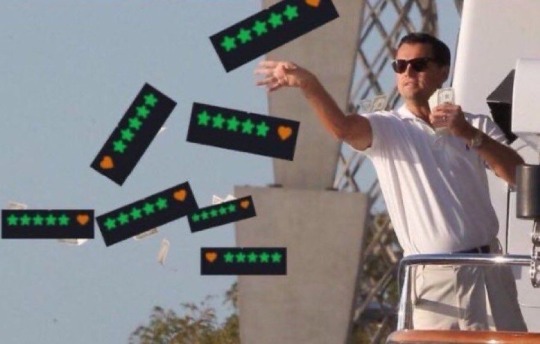
Stalker (1979), directed by Andrei Tarkovsky, is a haunting and visually poetic exploration of human longing, belief, and existential mystery. Set in a dystopian world, the story follows three men as they venture into the enigmatic “Zone,” a forbidden area rumored to grant one’s deepest desires. With its deliberate pacing and profound atmosphere, the film immerses viewers in a metaphysical journey, challenging perceptions of reality and the human spirit.

Oldboy (2003), directed by Park Chan-wook, is a gripping and intense mindfucking thriller that delves into themes of revenge, identity, and the darkness of the human psyche. The film follows a man mysteriously imprisoned for 15 years without explanation, who is suddenly released and given just days to uncover the truth behind his captivity. Stylish, shocking, and deeply emotional, it is a masterful exploration of vengeance and its consequences. Left me speechless.
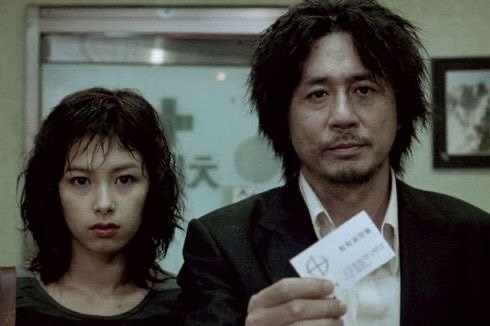
The Killing of a Sacred Deer (2017), directed by Yorgos Lanthimos, is a chilling psychological thriller that weaves a tale of guilt, sacrifice, and moral reckoning. When a charismatic surgeon befriends a troubled teenager, their connection takes a dark and unsettling turn of direct threat to his family. With its unnerving atmosphere and stark, deliberate style, the film is a haunting exploration of human vulnerability and consequence. Must add a warning for a particular singing scene of Burn by Ellie Goulding.
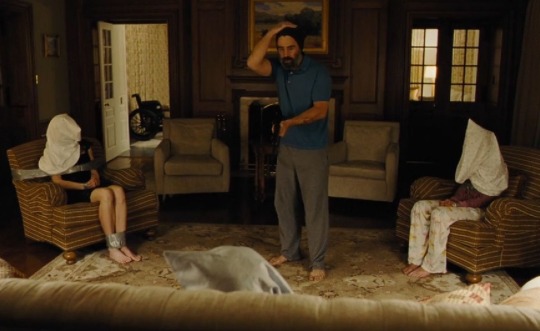
Uptown Girls (2003) is a rollercoaster comedy-drama about a carefree young woman whose life takes an unexpected turn from the meeting of a precocious and damn witty 8-year-old girl. As their contrasting worlds collide, both learn valuable lessons about responsibility, friendship, and finding their true selves. With humor, heart, and unexpected moments of growth, this film offers a charming look at how sometimes the most unlikely relationships can change your life.
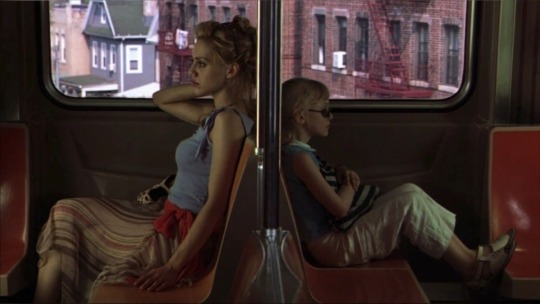
The Magician (1958) or ‘Ansiktet’ is a captivating psychological thriller directed by Ingmar Bergman. Set in the 19th century, it follows a traveling magician and his troupe as they perform elaborate illusions. When they arrive in a small town, they are met with suspicion, leading to a tense exploration of deception, identity, and the fine line between reality and fantasy. With its beautiful storytelling, striking visuals, and thought-provoking themes, the film delves into the human desire for control and the complexities of the mind.
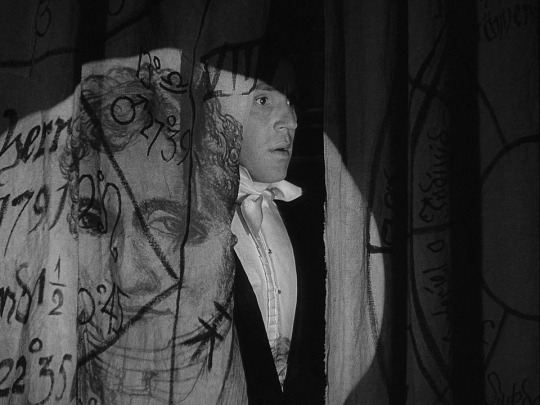
Marcel the Shell with Shoes On (2021) is a whimsical mockumentary on the tiny adventures of Marcel, a one-inch-tall shell with shoes, a face, and other great qualities. Living with his grandmother in a cozy yet quirky existence, Marcel becomes the subject of a filmmaker’s documentary, leading to a journey of connection, humor, and discovery. With its gentle humor, poignant storytelling, and a charm to capture anyone, the film celebrates the power of community and finding joy in the small things.
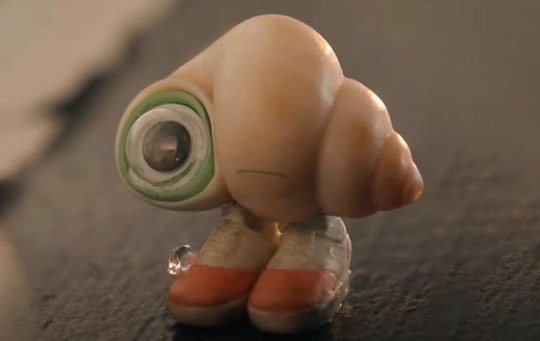
Christopher and His Kind (2011) is a compelling biographical drama based on Christopher Isherwood’s memoir, chronicling his transformative years in 1930s Berlin. The film explores Christopher’s search for love, identity, and artistic inspiration amidst the rise of an awfully fascistic society. With its rich period detail and powerful performances, the story captures a personal journey of self-discovery while reflecting the broader tensions of the real events of Germany’s national socialism.
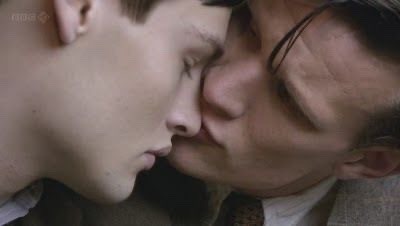
#letterboxd#movie review#cinema#brittany murphy#ingmar bergman#film#acting#marcel the shell with shoes on#matt smith#yorgos lanthimos#park chan wook
2 notes
·
View notes
Text
now i kinda want to write my late 00s pop star lesbian psychosexual thriller before i write the metaphysical digital age coming of age novel
10 notes
·
View notes
Text
REBROKEN - Review
DISTRIBUTOR: Gravitas Ventures
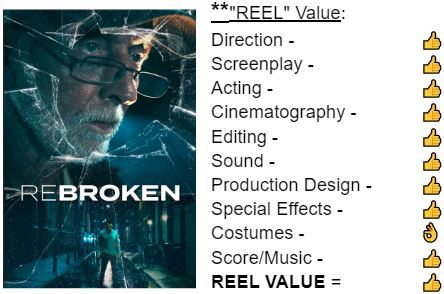
SYNOPSIS: “Will is a devastated father who spends his time between court-ordered grief counseling drinking himself into oblivion. He repeats the cycle of despair every day with no plans to stop, until he meets a mysterious stranger who gives him some old vinyl recordings. After Will listens to the records, he suddenly starts receiving messages from his recently deceased daughter. As the communications from his daughter grow more and more frequent, Will becomes convinced that these recordings hold the answer to bring his daughter back from the dead. But just as he is closing in on the truth, he starts to suspect that his counseling group has ulterior motives. After the stranger disappears, Will races against time to find him so he can get the last recording, or his chance to bring his daughter back might be gone forever.”
REVIEW: REBROKEN is a metaphysical psychological thriller that feels a bit like “Jacob’s Ladder” or the 2003 horror thriller “Identity,” that overall feels like a darker tale that might be penned by screenwriter Bruce Joel Rubin. There are several cast members who are also behind the camera to tell this tale of a father trying to cope with the loss of his daughter.
REBROKEN is a well-crafted screenplay. The story meters out Will’s situation that is able to sustain the big reveal right out to the last second. It does offer a few clues, but they are not obvious and some are even hidden from Will. Will is an anti-hero with numerous character flaws, but he is not presented as a totally bad guy. I did get the feeling that there was more to the story behind his daughter’s death. The other characters’ actions remain shrouded in mystery to the film’s climax, which nicely adds to the mystery and suspense. The story is nicely wrapped up by the end, although there are one or two questions left to the viewer to ponder, it felt appropriate given the tone of the film.
REBROKEN features an excellent ensemble cast. The tale centers around Will, played by Scott Hamm Duenas. He serves up a solid performance. You feel he has personal demons and that he is caught in his own personal grief loop. He creates an anti-hero who the viewer can feel sympathy for. The actors Kipp Tribble and Alison Haislip create his antagonists. As they develop they never lose the sense that the actions are motivation for Will’s benefit even though there is a level of suspicion. Tobin Bell adds this element of mystery and misdirection. He presents a wise sage that holds an alternative key to Will’s redemption. It’s a great character that needed a bit more screen time.
The film has solid production values, especially given the limited locations. There is a visual device used in the film that feels like rewinding, however, they usually come back to a point with a slightly different twist on it. It’s a well-done visual that consists of several different elements to pull off. The framing and editing creates a nice pace. I was never bored and remained engaged through to the end. Initially I was put off by the cinematography but slowly became immersed by look. Composer Wesley Hughes crafts a score that adds atmosphere and accentuates emotional moments, but there are times it is a bit loud and it stepped on the music Will played on his turntable. It felt awkward.
REBROKEN is the artistic endeavor of Scott Hamm Duenas, Kipp Tribble and Kenny Yates both in front of and behind the camera. Through the use of additional plot elements and visual stylings they put a refreshing spin on this genre film. They do an excellent job of concealing the story within the story that places Will in these surreal circumstances, and a splendid cast supports the mantle of the narrative. It feels like a “Twilight Zone” episode written by Bruce Joel Rubin and is well worth the view. I’m curious to see what this filmmaking trio might deliver next, especially if they had a slightly larger budget.
CAST: Scott Hamm Duenas, Kipp Tribble, Alison Haislip, Tobin Bell, Nija Okoro, and Kenny Yates. CREW: Director/Producer - Kenny Yates; Screenplay/Producer/Editor - Kipp Tribble; Story - Scott Hamm Duenas; Producer - Scott Hamm Duenas; Cinematographer - Nate Stifler; Score - Wesley Hughes; Production Designer - Casey Rose Daniel; Costume Designer - Alexandria Grashio; Special Makeup Effects Artist - Rebecca Hurwitz. OFFICIAL: N.A. FACEBOOK: N.A. TWITTER: N.A. TRAILER: https://youtu.be/iotgWrHVCJs RELEASE DATE: On Digital Platforms March 7th, 2023
**Until we can all head back into the theaters our “COVID Reel Value” will be similar to how you rate a film on digital platforms - 👍 (Like), 👌 (It’s just okay), or 👎 (Dislike)
Reviewed by Joseph B Mauceri
#film review#movie review#rebroken#gravitas ventures#scott hamm duenas#kipp tribble#kenny yates#tobin bell#metaphysical#mystery#thriller#joseph mauceri#joseph b mauceri
1 note
·
View note
Text
BEST DIRECTORS IN CINEMA-5
Hi everyone! This blog is going to be the 5th part of my 8 part series of who I think is the Best Director Cinema has ever seen
And today I will be talking about
CHRISTOPHER NOLAN
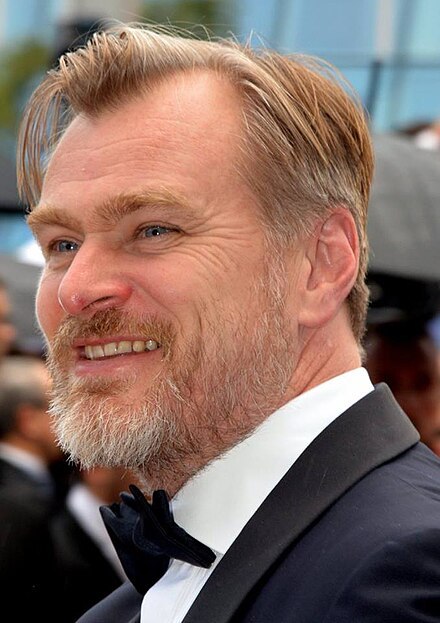
Christopher Nolan (born July 30, 1970, London, England) is a British film director and writer acclaimed for his noirish visual aesthetic and unconventional, often highly conceptual narratives. His notable films include Inception (2010), Interstellar (2014), Dunkirk (2017), and several Batman movies. In 2024 Nolan won an Academy Award for best director for Oppenheimer (2023), which was also named best picture.
(Early Life)
Nolan was raised by an American mother and a British father, and his family spent time in both Chicago and London. As a child, he attended Haileybury, a boarding school just outside London. From a young age Nolan was interested in moviemaking and would use his father’s Super-8 camera to make shorts. He was influenced by George Lucas’s Star Wars trilogy and by the immersive dystopian films of Ridley Scott.After attending University College London, where he studied English literature, Nolan began directing corporate and industrial training videos. At the same time he was working on his first full-length release, Following (1998). The film centers on a writer going to dangerous lengths to find inspiration; it took Nolan 14 months to complete. On the strength of its success on the festival circuit, he and his producer wife, Emma Thomas, moved to Hollywood.
(His Famous Works)
Nolan gained international recognition with his second film, Memento (2000), and transitioned into studio filmmaking with Insomnia (2002). He became a high-profile director with The Dark Knight trilogy (2005–2012), and found further success with The Prestige (2006), Inception (2010), Interstellar (2014), and Dunkirk (2017). After the release of Tenet (2020), Nolan parted ways with longtime distributor Warner Bros. Pictures, and signed with Universal Pictures for the biographical thriller Oppenheimer (2023), which won him Academy Awards for Best Director and Best Picture.
(Filmmaking Style)
His Filmmaking Style
Nolan's films are largely centred in metaphysical themes, exploring the concepts of time, memory and personal identity. His work is characterised by mathematically inspired ideas and images, unconventional narrative structures, materialistic perspectives, and evocative use of music and sound.Joseph Bevan wrote, "His films allow arthouse regulars to enjoy superhero flicks and multiplex crowds to engage with labyrinthine plot conceits. Nolan views himself as "an indie filmmaker working inside the studio system"
(His Filmography)
Nolan made his directorial debut in 1998 with a movie named Following (1998). He made many other films such as Memento in 2000,Insomnia in 2002. He also made the Batman Trilogy which included Bataman Begins (2005),The Dark Knight (2008) and The Dark Knight Rises (2012). In between the Batman Trilogy he directed movies like Prestige (2006) and Inception (2010). After this Nolan directed movies such as Interstellar (2014),Dunkirk (2017),Tenet (2020) and Oppenheimer (2023).
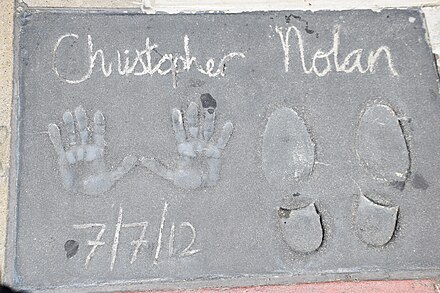
Nolan's hand and shoe prints in front of the Grauman's Chinese Theatre
(Awards & Honors)
Nolan has won 2 Academy Awards out of the 8 nominations, 2 BAFTA's out of the 8 nominations and he has 1 Golden Globe Award out of 6 nominations.
(Sources)
And that's it for this part folks, I'll meet you with another blog about some of the Greatest Directors Cinema has ever seen. Until then
CIAO
6 notes
·
View notes
Text
just got back from seeing Nefarious. I can tell you one thing: Christian movies are getting better and bolder. However
I don’t think I went in with a proper idea of the target audience, which makes me wonder if the creators knew what they were doing when they marketed it.
Is this movie made for Christians who know what time it is culturally and politically? No. Most of the intellectual and value content in this movie will be very familiar to such a Christian. The stuff it’s trying to make you think about will already be at the forefront of such Christians’ minds.
Is this movie made for horror fans or psychological thriller fans? No. The focus is not on scaring you or keeping you at the edge of your seat. It’s a chiefly dialogic film, almost Socratic. That said, it does a decent job of setting the bleak tone; I just wished—as a horror/thriller fan—the tone had been darker and more intense. And maybe it could have used some sort of visual thread to tie all the scenes to a shared visual language, especially in the final segment. My biggest grievance overall was with the final segment.
So who is this movie made for?
I think it’s made for two types of people:
1. The Christian (or church) who has been a passive participant in society. Who has not been keeping astride of the cultural or political currents, and who’s never really thought very hard about demons and may be laboring under a false impression of what demons are like, whether they interact with us, or whether they exist at all. (Though this is not a wholesale endorsement of Nefarious’ demonology.)
2. The secular conservative who does keep astride of the currents, but has a materialist worldview that denies the existence of the spiritual and metaphysical forces undergirding them.
As for some of the less important aspects of the movie, strengths are as follows:
ACTING. Most of the praise is being directed at Sean Patrick Flanery, who was certainly good as the titular character, but I thought Jordan Belfi’s more understated performance as the psychiatrist was fantastic. There was one particular scene toward the end where his expression gave me goosebumps.
SFX. Very sparse and definitely played to the genre, but with none of the flaws I’ve come to expect from Christian films, especially where it counted.
23 notes
·
View notes